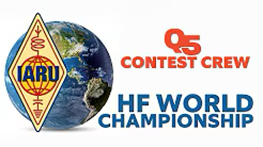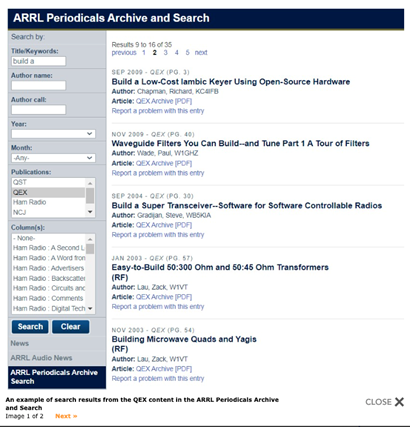Editor’s note: OnAllBands is pleased to post a series of articles written by accomplished amateur radio contester and DX Engineering customer/technical support specialist Kirk Pickering, K4RO. The articles, originally published in the National Contest Journal and updated with current information, offer valuable insights for both contesters new and old.
It’s a Contester Thing
For this entry of Contesting 101, I’d like to take a moment and reflect upon what the contesting community has taught me. The one theme that keeps recurring is that only contesters can appreciate what contesters do.
While I suppose that is stating the obvious, I think it is an important point to remember.
On the one hand, we have the reality that basically no one outside of contesting understands or cares about what we are doing. There are very few “spectators” that follow radio contesting, although some of the fine websites and YouTube channels covering radiosport are helping to raise awareness.

Not many people appreciate the work involved in a competitive effort. We can talk about the game to our spouse, our friends, and our coworkers, but it’s difficult to convey or demonstrate what we do. Even among casual contesters, there are many who have not learned to appreciate what goes into a full-blown effort.
We only have the view from the level we’re on, and we must climb higher to get a different view. The bottom line is that only a contester can appreciate what a contester does. We need each other to share the enthusiasm, joy, and even the “agony of defeat.” I think it comes back to mutual respect, and our mutual love of the game. Contesting is a community adventure, whether we like it or not. Even the most isolated single operator, all alone in the middle of nowhere, depends entirely upon a community of others to play the game. After the game is over, the scores and experiences are shared with the community.
Efforts are judged by the community, and merits are granted ultimately not with plaques and certificates, but with one’s reputation within the contesting community. With each passing year, contesting history is created. Call signs are added to hall of fame lists, and those who behaved poorly are remembered also. Operators come and go, and some are lost forever. Some are remembered with deep respect, some are lost in dishonor. The point is that there is no such thing as contesting in a vacuum. For better or for worse, the contesting community is an inescapable part of the game.
Those Who Know History…
One of my favorite ways to learn about the contesting community is to study its history. Thanks to the Internet, it is possible to study contesting history without leaving the comfort of our computer monitors. My first recommendation (naturally) is the National Contest Journal. The NCJ is available from the ARRL, going back to the beginning of the publication in 1973.
Editor’s Note: ARRL members can access specific NCJ articles (1973-2011), as well as content from QEX (1981-2011) and QST (1915-2011), through the organization’s Periodicals Archive and Search. Current and more recent issues of the NCJ and other publications are available to members in digital format.

While most hot topics are typically discussed (some ad nauseam) on the Internet today, the NCJ was the primary voice of the contesting community at the time. The letters in NCJ (to and from the editor) are particularly revealing. They provide a glimpse into the minds and hearts of contest operators from the past. One can get a sense of the hot topics of the day and witness that in this ever-changing sport, some things truly never change.
Another resource is the “CQ Magazine” archives dating back to 1945, available by subscription here. I have been reading the CQWW contest results, going back to the inception of the contest in 1948. One can follow the changes in the contest over the years and learn some of the reasons behind them. It’s also possible to trace the history of many competitors going back to their early days and see their progress over time.
Other places to read about contesting history include past issues of “Ham Radio” and “73” magazines. All issues of “73” magazine (1960-2003) are available free at the Internet Archive. Some contest community history can be gleaned from the CQContest archives at lists.contesting.com. Of particular interest are the earlier years, when contesting luminaries wrote extensively about their experiences and efforts, both on and off the air. Like so many discussion groups on the Internet, the signal-to-noise ratio has suffered over time, as everyone with an ax to grind discovers a soapbox. There are still gems worth mining. One trick is to search the archives for the call signs of operators whose opinions you’re interested in. There is some really great information available to the astute searcher from some of the sharpest minds in contesting.
One of the best places to read the experiences of current contest operators is 3830scores.com, created by WA7BNM. “3830” is where operators report their scores, and many also include a short story describing their time in the chair.
What Does All of This Have to Do with Operating?
Studying the history of contesting might not have an immediate impact on our scores, but it can increase our appreciation of the game in general. It’s fun to read the trials and successes of past operations. We can learn how some of the giants of contesting came up through the ranks and who their influences were. Understanding contesting history provides continuity with the past and can help us to interpret the current issues facing the contesting community. That’s all for this time. Please remember to send me your questions or comments. Next time we’ll get back into some nuts and bolts of operating technique. Most of all, don’t forget to have FUN with contesting. It’s possible to take this stuff too seriously, so try to keep it enjoyable, regardless of your level of pursuit.
73
-Kirk, K4RO

